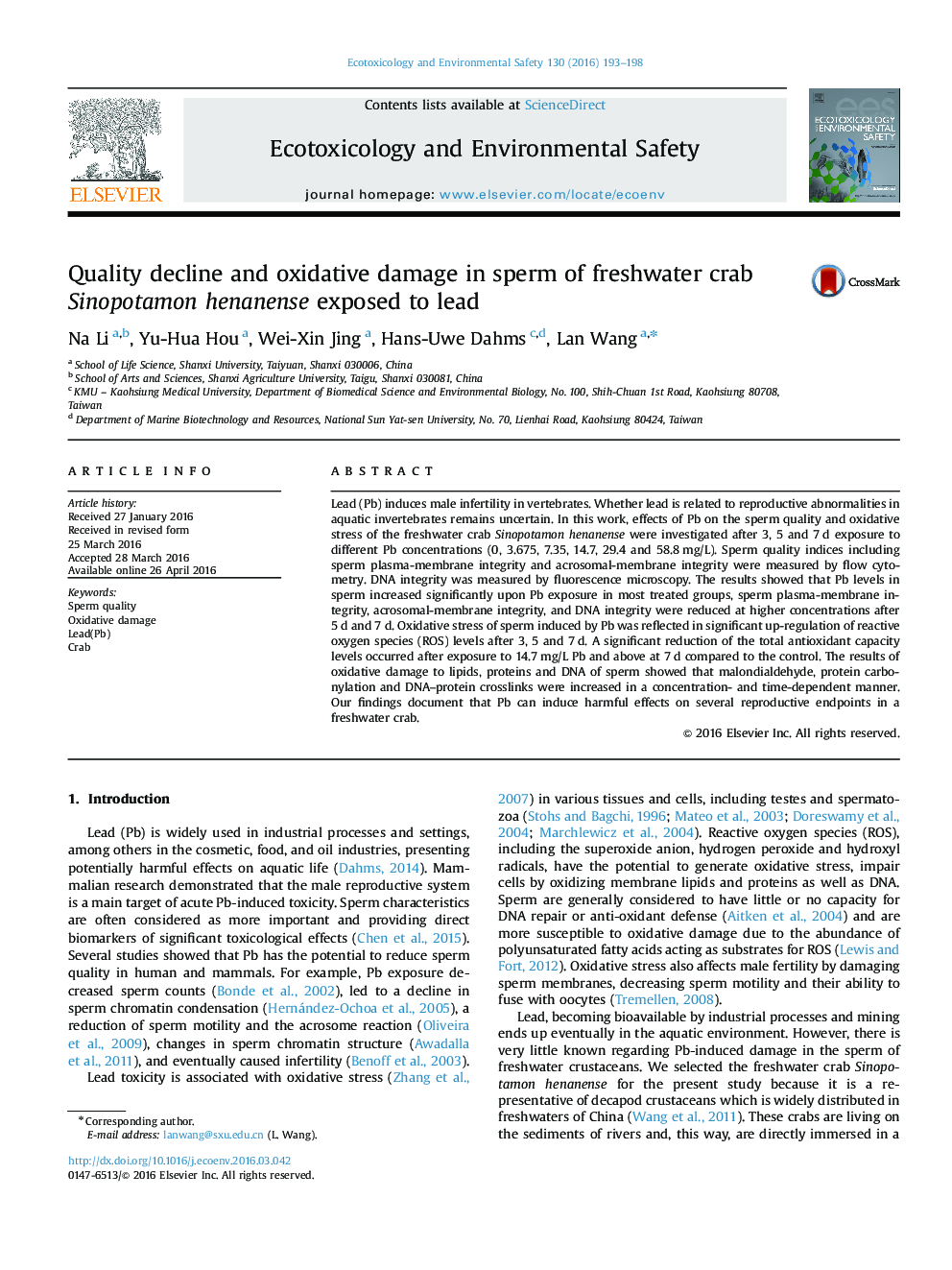| Article ID | Journal | Published Year | Pages | File Type |
|---|---|---|---|---|
| 4419172 | Ecotoxicology and Environmental Safety | 2016 | 6 Pages |
•Pb exposure caused sperm quality decline in Sinopotamon henanense.•Oxidiative stress of sperm induced by Pb.•MDA contents, PCO and DPC level were increased with increasing Pb concentrations.
Lead (Pb) induces male infertility in vertebrates. Whether lead is related to reproductive abnormalities in aquatic invertebrates remains uncertain. In this work, effects of Pb on the sperm quality and oxidative stress of the freshwater crab Sinopotamon henanense were investigated after 3, 5 and 7 d exposure to different Pb concentrations (0, 3.675, 7.35, 14.7, 29.4 and 58.8 mg/L). Sperm quality indices including sperm plasma-membrane integrity and acrosomal-membrane integrity were measured by flow cytometry. DNA integrity was measured by fluorescence microscopy. The results showed that Pb levels in sperm increased significantly upon Pb exposure in most treated groups, sperm plasma-membrane integrity, acrosomal-membrane integrity, and DNA integrity were reduced at higher concentrations after 5 d and 7 d. Oxidative stress of sperm induced by Pb was reflected in significant up-regulation of reactive oxygen species (ROS) levels after 3, 5 and 7 d. A significant reduction of the total antioxidant capacity levels occurred after exposure to 14.7 mg/L Pb and above at 7 d compared to the control. The results of oxidative damage to lipids, proteins and DNA of sperm showed that malondialdehyde, protein carbonylation and DNA–protein crosslinks were increased in a concentration- and time-dependent manner. Our findings document that Pb can induce harmful effects on several reproductive endpoints in a freshwater crab.
